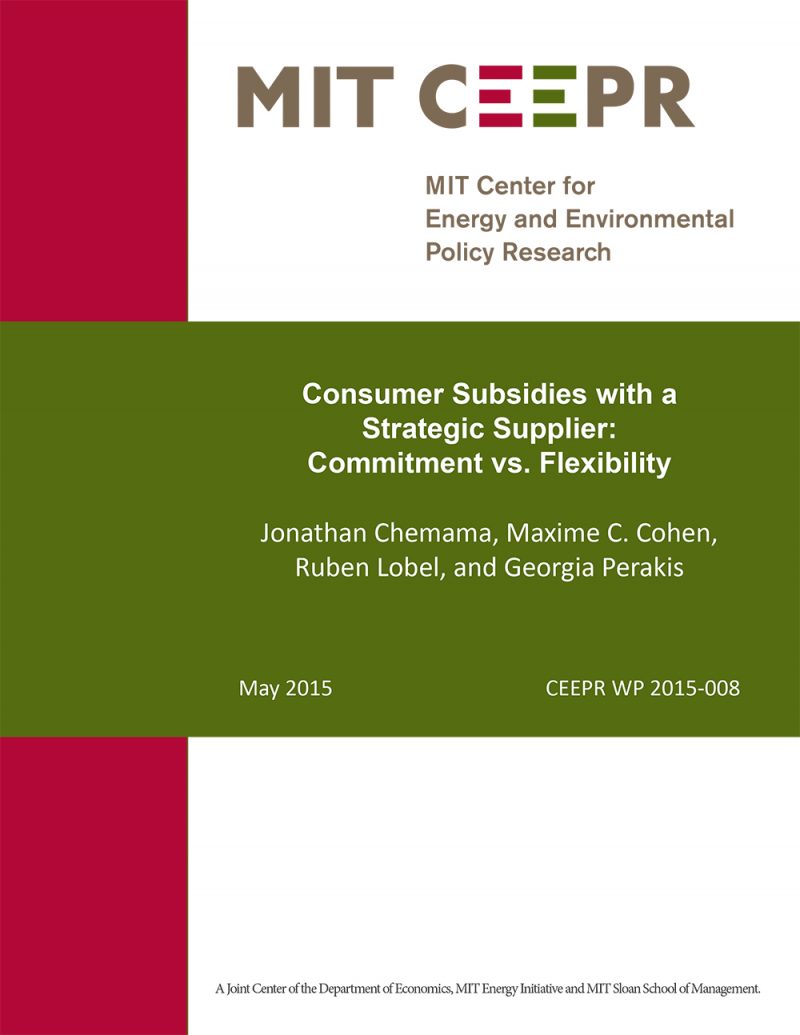Consumer Subsidies with a Strategic Supplier: Commitment vs. Flexibility
Jonathan Chemama, Maxime C. Cohen, Ruben Lobel, and Georgia Perakis
May 2015
Governments use consumer incentives to promote green technologies (e.g., solar panels and electric vehicles). Our goal in this paper is to study how policy adjustments over time will interact with production decisions from the industry. We model the interaction between a government and an industry player in a two-period game setting under uncertain demand. We show how the timing of decisions affects the risk-sharing between government and supplier, ultimately affecting the cost of the subsidy program. In particular, we show that when the government commits to a fixed policy, it encourages the supplier to produce more at the beginning of the horizon. Consequently, a flexible subsidy policy is on average more expensive, unless there is a significant negative demand correlation across time periods. However, we show that the variance of the total sales is lower in the flexible setting, implying that the government



